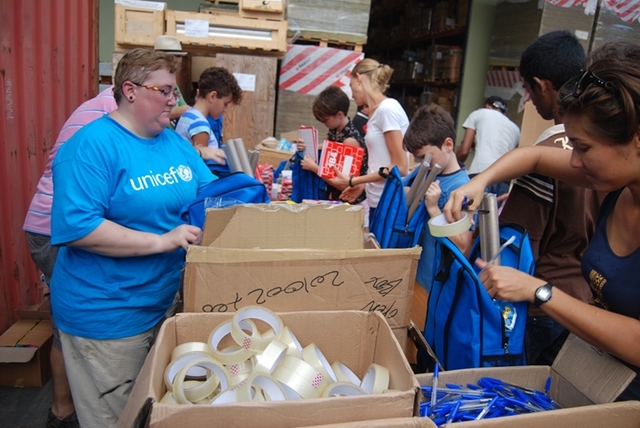A new policy brief published by the United Nations Children’s Fund (UNICEF) on August 15 reveals that nearly 60,000 children aged 0-17 years across five countries in Central Asia are currently living in residential care facilities. This alarming figure translates to an average of 203 children per 100,000, nearly double the global average of 105 per 100,000, raising concerns about the effectiveness of child protection systems in the region.
“The rate of children in residential care can reflect the strength of a country’s child protection system, with a higher rate signaling a system that is failing to keep families together,” stated Regina De Dominicis, UNICEF Regional Director for Europe and Central Asia. She emphasized the severe and long-lasting impact of institutionalization on children and called for increased investments in family support services. “No child should ever be placed in alternative care because of poverty, disability, or challenging behavior, or because their family lacks access to the services they need to care for their own child at home,” she added.
The report highlights the vulnerabilities faced by children in institutional settings, including increased risks of violence, neglect, and abuse. It notes that children who grow up in residential care are more likely to experience social exclusion, substance abuse, and legal troubles later in life. The prolonged stay in institutional care also complicates efforts to reunite these children with their biological families or place them in alternative family-based care settings.
One of the most concerning findings of the report is the strong link between disability and the likelihood of a child being placed in residential care. Between 2015 and 2021, the share of children with disabilities in residential care increased across four Central Asian countries, with the exception of Kazakhstan. In 2021, children with disabilities made up 24% of all children in residential care facilities in Kazakhstan, with the figure rising to a staggering 87% in Turkmenistan. This trend underscores the deep-rooted social norms and lack of community-based services available for children with disabilities in the region.
To address these challenges, UNICEF has outlined several policy recommendations aimed at facilitating the closure of large-scale institutions by 2030 and supporting the reintegration of children into family environments. These recommendations include implementing comprehensive childcare reforms, investing in family support services and the social service workforce, securing stronger support for extended family members, and ensuring the protection of children in alternative care against violence, neglect, and abuse.
The findings of this report serve as a stark reminder of the urgent need for reforms in child protection systems across Central Asia to ensure that all children can grow up in a safe and nurturing family environment. UNICEF’s call for action highlights the importance of prioritizing family-based care and supporting families to prevent unnecessary institutionalization of children.



